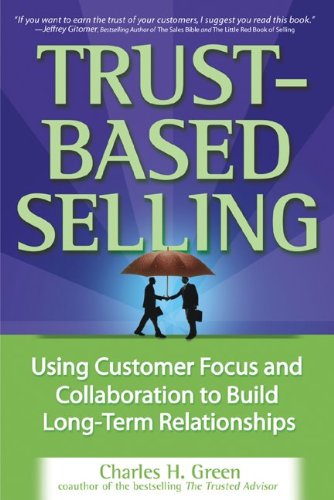(McGraw-Hill, 2005). “Sales” and “Trust” rarely inhabit the same sentence. Customers fear being “sold”–they suspect sellers have only their own interests at heart.
Salespeople themselves know this dilemma. On the one hand, we want to do right by our customers. Yet we want to get the sale. It feels conflicting.
Is this a built-in conflict? Are we doomed to “caveat emptor?” Or can sellers serve buyers’ interests and their own as well?
Trust-Based Selling is a paradox, but not an oxymoron. People demonstrably prefer to buy what they must buy anyway from those they trust. And they trust sellers who put the buyer’s interests first. Hence the paradox: to get the sale, stop making that your objective.
Sellers actually have to care about the customer. Not for sustainable advantage, or as a poker chip in a competitive game, but as an end in itself–not a means to an end. You can’t fake trust. The trick is—you actually have to care. The solution is simple to state, hard to live.
The only reason it sounds radical is that it’s so uncommon. This book aims to make it more common.

